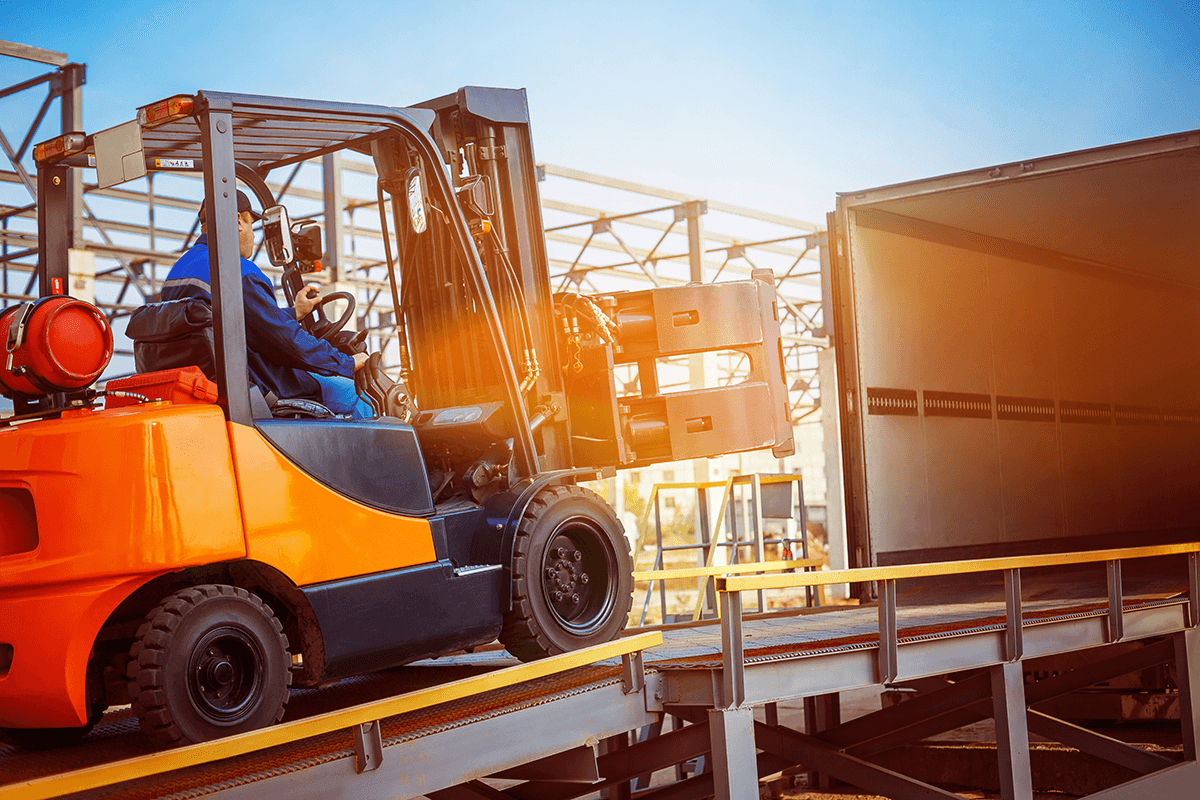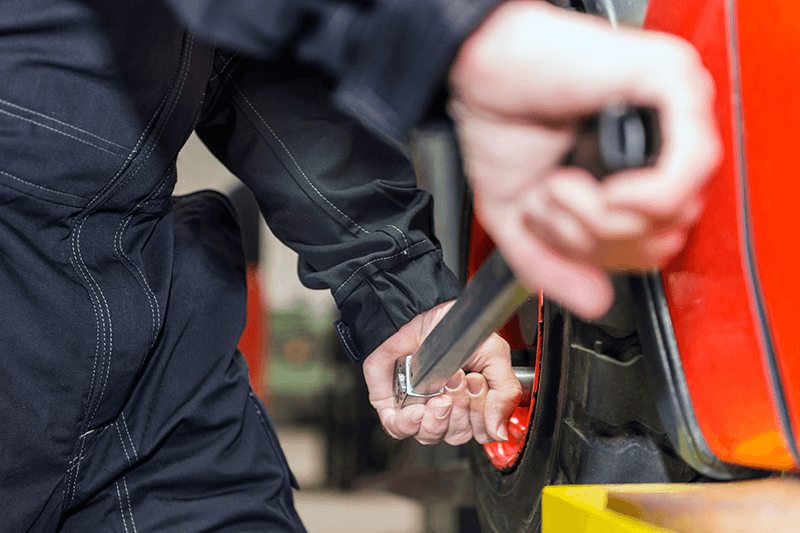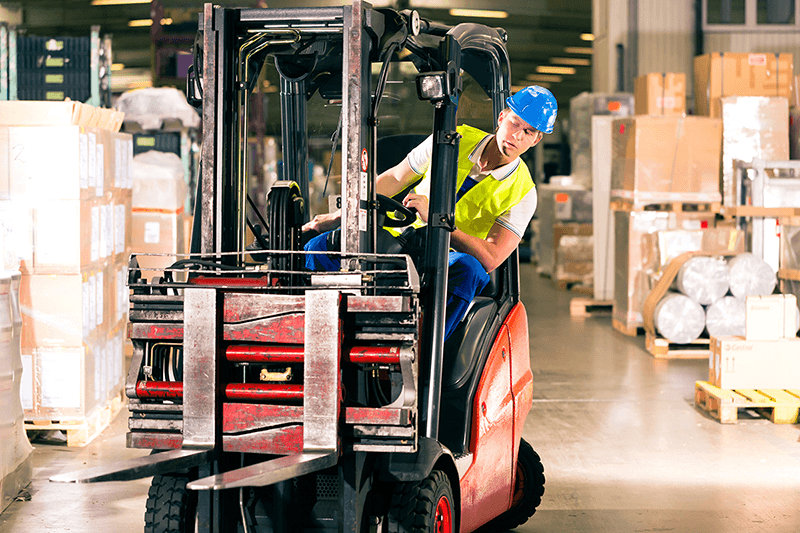Ross Grassick
General
Why Buying a Quality Forklift Will Reduce its Whole Of Life Costs

Buying a new forklift for your company’s materials handling needs can be a significant capital outlay, so you will obviously want to get value for money with your purchase.
But value doesn’t begin and end with the purchase price, as this is only roughly 10% of the total ownership costs. The other 90% are costs that are not immediately apparent, but which can add up to a substantial amount over the lifetime of the equipment.
So while getting your forklift for a good price is obviously important, your primary goal should be to minimise its ‘whole of life’ costs and the best way to achieve this is by purchasing a quality forklift in the first place.
Choosing equipment with cost saving features will not only help you to keep whole of life costs to a minimum, but can also help increase your overall productivity levels as well.
What are the whole of life costs?

So what are the whole of life costs that make up the other 90% of your cost of ownership? Here are some of the major costs you may incur as a forklift owner.
Fuel
Fuel prices are always rising, so if you are buying a petrol or diesel forklift, you can expect your running costs to increase over time. Cheaper alternatives are gas powered or electric forklifts, so if you don’t need a combustion driven forklift, perhaps look at one of these models instead.
It will depend on whether your forklift will spend the majority of its time indoors (in which case, electric would be necessary anyway due to carbon monoxide emissions) and the weight of materials it will be handling (combustion forklifts are available in higher capacities than electric).
Tyres
The type of tyres your forklift uses will depend on its capacity and operating conditions. The three main types of forklift tyres are cushion tyres (indoor tyres for electric forklifts), pneumatic tyres (compressed air tyres for outdoor use) and solid pneumatic tyres (solid rubber tyres for all-terrain use). Regardless of which kind you use, tyres are expensive to buy and can, therefore, be a substantial operating cost over time. Be sure to purchase your tyres from a reputable seller, and seek expert advice so you know your tyres are perfectly suited to your forklift and its application.
Maintenance
Ongoing maintenance is by far the biggest whole of life cost of your forklift. It will need to be serviced regularly according to the manufacturer’s specifications and how often this needs to be done is a primary consideration when comparing two similar forklifts from different suppliers.
The time it takes to perform the actual maintenance is another important consideration and this is where one type of forklift can be superior to another in terms of accessible design features.
When purchasing a forklift, warranty periods and maintenance support are crucial whole of life cost factors. At Lencrow Forklifts we offer 5 year total care warranty across many of our forklifts, protecting you from any hefty repair costs down the line.
Operator comfort
Operator comfort is also a cost to be considered, like a badly designed forklift can lead to bad driving practices which can affect other costs such as fuel usage, engine wear, tyre wear and safety.
An operator can spend long hours every day on a forklift, so correct ergonomics and comfortable features are must-haves that need to be factored into the cost of your forklift to counter this potential whole of life cost.
What are the cost savings to be made with a quality forklift?

While materials handling equipment is a relatively mature industry, new innovations continue to appear every couple of years, so it’s important to ensure when buying your forklift that you are purchasing the best technology available.
This will allow you to compare apples with apples when choosing your forklift, knowing that the features you need are present in all models to varying degrees.
A quality forklift will contain a range of features, which when combined should significantly reduce your overall cost of ownership. These might include;
Fuel-saving technology
Some forklift brands feature fuel saving innovations such as load sensing variable displacement hydraulics, which can help to reduce fuel consumption. Others have developed fuel monitoring features which also save fuel by measuring and fine-tuning driver performance.
Long-life tyres
Some forklifts are fitted with longer life tyres designed to travel longer distances and at higher speeds. Tyre manufacturers have also developed special purpose tyres for various applications, such as anti-static tyres for flammable environments and non-marking tyres for clean storage areas such as food handling operations.
Less maintenance
As well as having longer maintenance intervals than other models, some forklifts are also designed to be easier to maintain. Providing easy access to vital maintenance points ensures servicing will be more likely to be regularly performed by operators and the time taken to do it will also be less, meaning higher productivity.
Greater safety
Look for forklifts where safety features are standard rather than optional extras. These might include mast cylinder velocity fuses (prevent the mast from falling if a hose is ruptured), hydrostatic power steering (prevents steering wheel ‘kick back’) and catalytic converters (prevent engine exhaust sparks near LPG units).
Greater comfort
Operator comfort is also directly related to safety and job satisfaction, so comfort and ergonomics should be considered a necessity, particularly if your forklift is operated for long hours or in consecutive shifts. Operator features to look for include a comfortable seat, ergonomic placement of controls, and good all-around visibility.
Things to keep in mind
There are obviously going to be some mandatory requirements which you will not be able to compromise on in order to reduce your overall costs of ownership. These will include;
- Capacity – this is the most crucial factor when choosing a forklift. You will need to select a model that can safely lift the goods in your materials handling operation, which in some cases may necessitate a larger, more expensive unit.
- Work environment – the size of your warehouse or operations centre, the way it is laid out (i.e. vertically or horizontally, indoor or outdoor) and the amount of available workspace will determine the type of forklift you need to be able to operate efficiently.
- Budget – buying a new forklift can be a significant financial outlay, and with the added whole of life costs involved, it may not be financially viable for a new or growing business. In this case, you may want to look at hiring a forklift or purchasing a second hand model.
Keep whole of life costs down with Lencrow
Whether you buy or lease, you’ll find what you need at Lencrow Forklifts. We are Australia’s largest independent supplier of high quality materials handling equipment, and we know how to keep your forklift’s whole of life costs to a minimum.
Indoor or outdoor, 1 tonne to 50 tonnes, electric, fuel or LPG, we carry a huge range of pallet jacks, tow tractors, forklifts, telehandlers and reach stackers.
Many include features designed to minimise your long-term operating costs and at Lencrow, we can reduce your costs even further with our Planned Preventative Maintenance Program, a tailored program that ensures your forklift fleet is properly serviced on a regular basis.
To find out more about the whole of life benefits we offer, visit us at Lencrow Forklifts.
